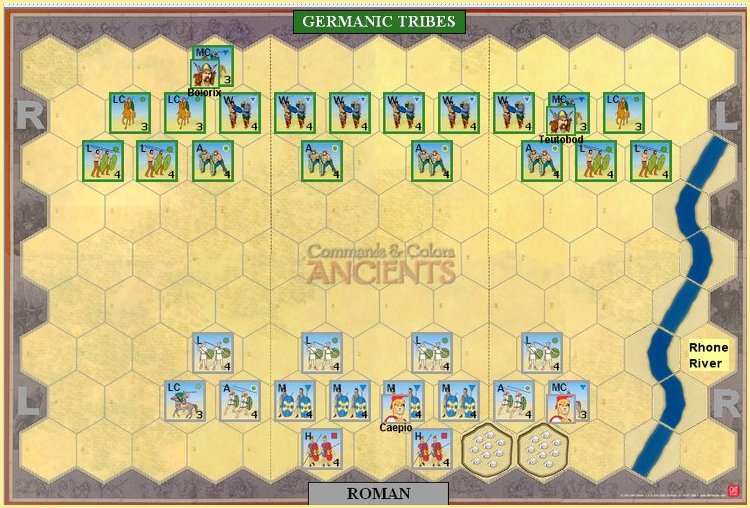


Once his consulship came to an end (and he became legally liable for his former deeds) he fled into exile. Worse still for Marius, the senate no declared all of Saturninus’ laws nill and void, on the basis that they had been achieved only by force. A enraged mob broke into his cell and lynched him. Marius had no choice but to oblige, arresting his chief political ally. This was a step too far and the senate issued a senatus consultum ultimum, order of highest authority known to the Roman constitution, ordering Marius to take action against Saturninus. Saturninus now however should finally stumble, when he organised the assassination of a political opponent. For it was the first time in which it emerged that no-one could rule Rome without the support of the army. Once more Marius created a precedent of historic proportions. It was an implied threat as to what might happen if veterans should be denied land. But of course the arrival of the troops was not merely a question of keeping the peace. Marius had to call his soldiers into to Rome to restore order. The proposals were eventually accepted, but not without determined opposition and the outbreak of violence in the streets of Rome. Also part of the bill was the granting of Roman citizenship to Italian allies who had contributed ther fair share in the defeat of the barbarians. In the same year Saturninus brought forward on Marius’ behalf proposals by which soldiers should be allotted land on discharge form the army. This political alliance managed to win Marius yet another consulship in 100 BC. Saturninus was a ruthless figure not beyond using violence for political means. With Rome safe from northern invaders, Marius now sought to repay the debt to his army by establishing laws by which veterans should receive land after having served their time.įor this he allied himself with the Tribune of the People Lucius Appuleius Saturninus.

He did so in two great battles, annihilating the Teutones 102 BC at Aquae Sextiae and in 101 BC the Cimbri at Campi Raudii near Vercellae. Marius, elected consul again in 105 BC, enojyed successive election victories as consul until 101 BC, during which time his task was to destroy the menace of the Cimbri and Teutones, who had shattered teh Romans earlier. Had Marius and his new army of mercenaries crushed Jughurta, then now Rome laid its trust in him to save them from the menace which lay to the north. It was teh worst setback the Romans had suffered since the awful defeat by Hannibal at Cannae. Under the command of Caepio and Manlius, they suffered a crushing defeat against the barbarians at Arausio. Although the eventual negotiations had most of the glory slip from Marius’ grasp, as it was a young quaestor, Cornelius Sulla, who should achieve victory and peace in these talks, not Marius.Īt about this point in time (105 BC) a disaster befell the Romans on their northern borders.
ARAUSIO MAP PROFESSIONAL
This new, professional army, trained by new methods introduced by Marius, set over to Africa and made easy work of bringing the war to an end. Perhaps unwittingly Marius set in motion a revolution in Roman army affairs, and his action is a landmark in Roman history. But most of all he offered them jobs, a means of making a living. Rather than to enlist from the landowning classes, Marius now offered the soldier’s job to Rome’s poor, promising them adventure, glory and booty. To raise new forces with which to set over to Africa, Marius now broke yet another tradition. For only the senate had authority to appoint military commanders. This was unlawful and showed how little the grizzled military man, which Marius was, thought of following proper procedures. He won the election, but now used his standing to persuade the comitia tributa so elect him the new commander of the forces in Africa. The commander of the Roman forces, Metellus, was not very successful against teh foe, and so in 108 BC Marius returned to Rome and stood for the office of consul. Next he served in Africa in the wars against Jughurta. This marriage should in effect make him the uncle of Julius Caesar. In 115 BC he became praetor and married Julia, of the powerful patrician family of the Julii. He did not hold any public office until he was voted to the position of Tribune of the People in 119 BC. Marius was of humble beginnings, having been born near the town of Arpinum in Latium.įirst serving in Spain, Marius was essentially a military man.


 0 kommentar(er)
0 kommentar(er)
